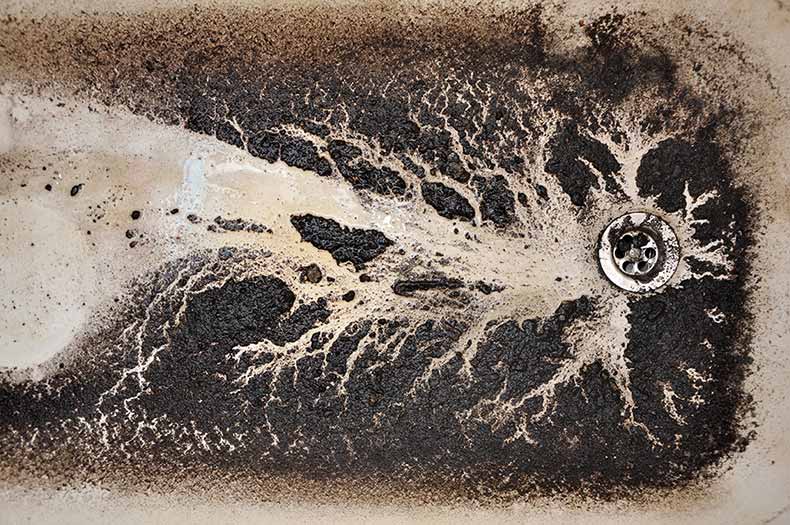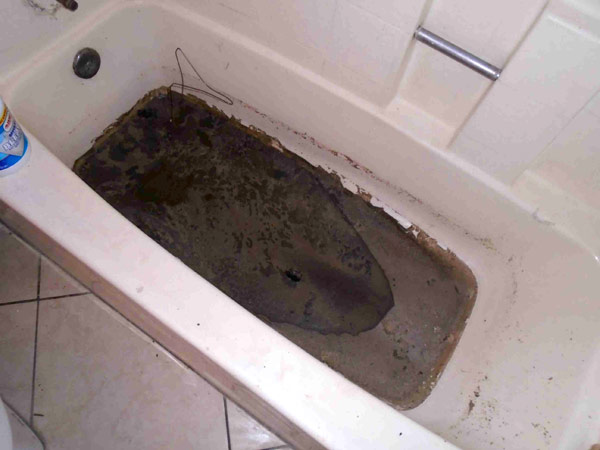How do you actually feel when it comes to Water Coming up Bathtub Drain?

Sewer back-up in the tub can be a stressful and unsanitary issue for any kind of home owner. Not only is it troublesome, yet it additionally postures major health and wellness risks and shows underlying issues with the plumbing system. Comprehending why sewer is showing up via the bathtub is crucial for taking ideal action to attend to the trouble efficiently.
Introduction to the Concern
Common Reasons for Sewage Backup
Clogs in the Sewer Line
One of one of the most typical causes of sewer back-up is a clog in the sewage system line. This can happen as a result of the buildup of particles, oil, or international things in the pipelines, protecting against correct flow and triggering sewage to back up right into your bath tub.
Tree Origin Breach
Tree roots looking for wetness and nutrients can infiltrate sewage system lines with little fractures or joints. In time, these roots can grow and increase, causing considerable damage to the pipelines and bring about sewage back-up problems.
Recognizing the Problem
When sewage starts backing up right into the bathtub, it's a clear indication of a trouble with the drain system. The wastewater that needs to be moving far from your home is instead discovering its way back into your home, which can cause substantial damage and health hazards.
Prospective Causes
Several aspects can contribute to sewer backup in the tub. From obstructions in the sewer line to problems with the plumbing facilities, identifying the root cause is crucial for locating an option.
Aging Framework
Older homes may have outdated plumbing systems that are much more vulnerable to corrosion, cracks, and damage. As pipes age, they become a lot more prone to leakages and clogs, enhancing the possibility of sewage back-up occurrences.
Heavy Rainfall or Flooding
Throughout durations of heavy rainfall or flooding, the drain system may come to be overloaded with excess water, triggering back-ups and overflows. This can lead to sewer backing up right into tubs and various other components inside the home.
Indications of Sewage Back-up
Foul Odors
Undesirable odors emanating from drains pipes or fixtures, particularly in the restroom, may suggest sewage back-up issues. These smells are typically solid and relentless, signaling a trouble that requires prompt attention.
Slow Draining Fixtures
Bathtubs, sinks, and bathrooms that drain pipes slowly or not at all could be experiencing sewer back-up. If several fixtures are affected concurrently, it's likely that the problem stems from an usual factor, such as the major sewer line.
Gurgling Sounds
Strange gurgling or bubbling noises coming from drains pipes when water is running elsewhere in your house are a sign of air caught in the plumbing system. This air accumulation can result from sewer backup and should be explored promptly.
Health And Wellness Risks Connected With Sewage Backup
Contamination of Supply Of Water
Sewage backup can pollute the supply of water in your house, posturing a significant health threat to you and your family. Exposure to polluted water can lead to stomach issues, skin infections, and various other ailments.
Mold and mildew Development
Moisture from sewer back-up can create excellent problems for mold growth in your house. Mold spores can exacerbate respiratory system problems and create allergies in sensitive individuals, making timely cleanup necessary.
Spread of Condition
Sewer has dangerous germs, viruses, and bloodsuckers that can cause a variety of conditions, consisting of hepatitis, cholera, and gastroenteritis. Entering into contact with sewage or infected surface areas places you in danger of infection.
Tidying up After Sewer Backup
Disinfection Procedures
Extensively sanitize and sterilize influenced locations after sewer backup to eliminate harmful bacteria and stop mold and mildew development. Usage suitable cleaning items and protective gear to ensure secure and effective cleaning.
Restoration of Influenced Locations
Fix any kind of damage to flooring, wall surfaces, or fixtures brought on by sewage backup. Depending upon the level of the damage, you may need to replace carpets, drywall, or other materials to recover your home to its pre-loss problem.
Immediate Actions to Take
Shutting Off Water System
In case of sewage backup, it's essential to turn off the supply of water to prevent additional contamination and damages. Locate the primary water shutoff valve in your house and closed it off until the concern can be solved.
Speaking To a Specialist Plumber
Dealing with sewer back-up is not a do it yourself work. Call a certified plumber with experience in taking care of sewage-related problems to evaluate the situation and do needed repairs or cleanups.
Preventing Contact with Infected Water
Up until the sewer backup is dealt with, stay clear of contact with infected water to stop the spread of germs and microorganisms. Wear protective equipment if you should be in the afflicted area and wash your hands extensively afterward.
Safety nets
Routine Upkeep of Sewer Lines
Set up normal examinations and upkeep of your sewage system lines to identify and deal with prospective problems before they intensify into major problems. This can include clearing out debris, examining for tree root invasion, and fixing any broken pipelines.
Mounting Bayou Valves
Think about setting up backwater shutoffs in your plumbing system to avoid sewer from flowing back into your home throughout periods of heavy rainfall or flooding. These shutoffs automatically close when water starts backing up, shielding your residential property from contamination.
Appropriate Disposal of House Waste
Avoid purging anything apart from toilet tissue and human waste down the bathroom to avoid obstructions and clogs in the sewer line. Dispose of grease, oil, and various other home chemicals properly to lessen the threat of plumbing problems.
Why Is Water Backing Up in My Bathtub When I Flush My Toilet?
What to do about a sewer line clog
First, don’t bother with plunging. No amount of plunging will dislodge the clog in a sewer line. The clog is too far away. Plungers are for clogs in the toilet itself, not the sewer line. Plus, the most likely causes of a sewer clog are:
- Tree roots
- Flushed toys or feminine products
- Grease buildup
Those items don’t move easily. And in the case of tree roots, the roots need to be cut out of the pipe and the pipe will need to be repaired.
You’ll need a closet auger. A closet auger is a type of plumber’s snake with a protective cover to keep from scratching the delicate porcelain toilet. If the clog is further down, you may need to remove the toilet or use one of your cleanouts to get to the clog.
We also recommend doing a video inspection of the drain to ensure that the cause of the clog has been completely removed. Otherwise, you could have the same problem again in a few days or weeks.
https://mspplumbingheatingair.com/blog/why-is-water-backing-up-in-my-bathtub-when-i-flush-my-toilet

I'm certainly very taken with What To Do If Sewage Starts Backing Up Into the Shower and I hope you enjoyed reading our blog post. Sharing is good. You never know, you may just be helping someone out. Bless you for being here. Come back soon.
Book Service Now
Comments on “Crucial Explanations for Waste in the Bathtub”